Here in the northern hemisphere the seasons are changing. Europe is finally getting some rain. I don’t know about you, but this really does change my mood and the kind of music I want to hear. The time for music I associate with spring and summer is over. So I am playing less and less ska, skatepunk and hardrock/melodic heavy metal. In comes the doom metal, you’d say? Well, not necessarily. Especially not this year. This year seems to be a good year for grindcore. When people talk about grind culture, I am always disappointed they are not talking about grindcore (sorry for the dad joke!). Anyway, despite grind records not being known for their excessive runtime I do give them a lot of playtime this year. Let’s have a look, shall we?
Grind away!
Let’s start with the grind record that impressed me the most so far, Hiss by Wormrot. What impresses me most in this album is how diverse a sound Wormrot created. Grindcore being a genre known for its short and very explosive songs. This also means that there is not much room for experimentation within the limited runtime of a song. Wormrot does acknowledge that and does not really care. They behave like Frankenstein: they start with a healthy base of Nasum-styled grind only to then patch random experiments in their tunes and breathe life into it. By doing so they expand the genre a bit, I would argue. Don’t be surprised if all of sudden you hear a clean chorus that could be lifted from a Fear Factory song or a Municipal Waste riff or symphonic flourishes. It shouldn’t live, but this monster sure does. My advice? Give it some love, make it feel welcome! Trust me, you’ll enjoy it!

Nasum is, nowadays, an example that is quite often followed by other bands. Another staple in the genre that is a shining example for their followers is still, of course, Napalm Death. Antigama just released a new album called Whiteout. With this introduction it should not come as a surprise to you that this excellent album has a bit of a Napalm Death vibe going on. Spinning Whiteout, I am reminded of Order Of The Leech to make the reference more specific. Not that it is a carbon copy, but you can hear the influences seeping through. Knowing this, please bear in mind that Antigama has crafted a niche for themselves where they have their own recognizable sound. Something they share with Napalm Death is the strong songwriting. I can only detect one song that I do not like on this album and that’s album closer "2222".
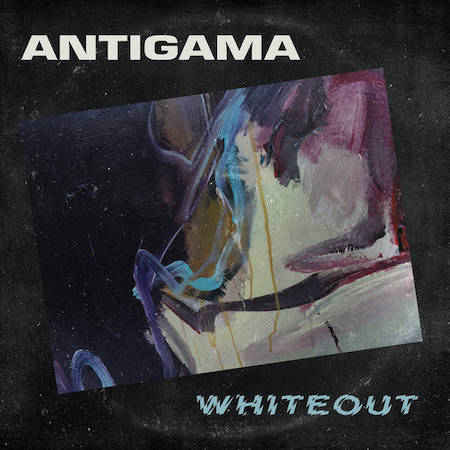
Where you could say Antigama’s sound is grindcore bordering on death metal at times, Abaddon Incarnate is walking even closer to that border. This Irish band has been off the radar for a while. Their last studio album was from 2014. Can we call this a comeback? I am not sure. Does it really matter? I am not sure either. The Wretched Sermon is their sixth album and the first one to catch my attention. That much they have in common with the two bands we discussed already. All three bands have recorded a bunch of albums that are now on my “to discover” list. This album is a rager with very diverse songwriting to boot. Every song offers a different perspective on the genre. Take, for example, “Parasite” with a very recognizable almost tribal-like drum pattern. At first play I thought it was the intro but, no, this is held up for the biggest part of the song. Sidesteps like this that provide some room to breathe. The production is also worth mentioning. It reminds me of those death metal productions from the early ‘90s. You remember that sound when every band seemed to be going to Morrisound? This seems to be the sound they were going after. It works wonders for them and gives an updated old-school sound. I dig this!
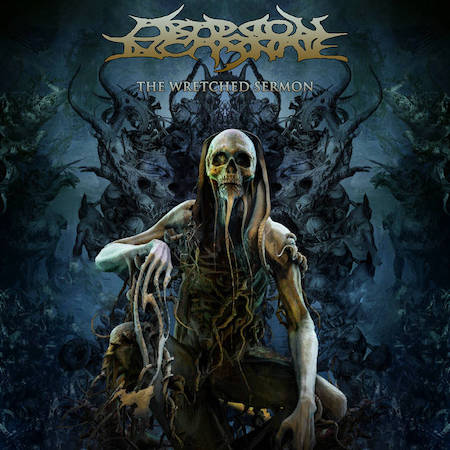
Are we done with the grind yet?
No, like I said: there is so much grindy goodness being released now! So allow me to ramble on for a bit longer. Let’s move on to Abaddon Incarnate labelmates Ernia and their debut album, How To Deal With Life And Fail. This Spanish band approaches the genre from a more techy angle. Where Abaddon Incarnate sounds very pessimistic, Ernia introduces a bit lighter perspective, sound-wise. Less muffled and with more room for strange side-steps. The guitar sound around 45 seconds into the opening song “Farewell, Sputnik” is a trick we have heard many times before, but it still works like a charm. It reminds me of the first The Red Chord album (and that is always a good thing), but less core-influenced. As it is more techy it demands a bit more attention, which makes this a record that I find a bit more difficult to play. Still, it is a winner in my book! The fantastic artwork is a nice bonus too.
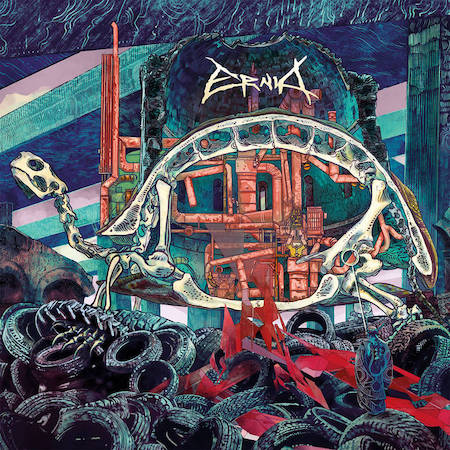
I’ll stop my ramblings on grindcore here. Even if I didn’t tell you about Herida Profunda or Narakah (who released impressive albums). Nor did I mention Cloud Rat’s upcoming album. That last one isn’t out yet, as I am writing this, but the tracks that I heard so far sound absolutely promising! This is the one grind album that I see topping Wormrot this year.
But what if I like longer and more complicated songs?
Have you checked our “the year so far” feature in July? Like with the end of year lists, this is a glorious moment for me to dive into all kinds of new music. What did I miss that my colleagues did capture? Piro ravingly put Kardashev's album Liminal Rite at the top of his list. This record has a certain emotional depth that I hear but I cannot connect to yet. It did make me think about other hard hitting records with emotional depth. Specifically about two albums that did hit home for me.
First off is White Ward. This band from Ukraine had been on my radar for a while. Like Kardashev's record I could hear the quality, but it just didn’t click for me. Until False Light hit me like a ton of bricks. All of a sudden everything just clicked. I understood, but more importantly (to me at least), I felt what this band was trying to convey. This band mixes post-black metal with post-rock and jazz influences and combines them in such a way that it takes you on a trip. Just let this album wash over you while you have your eyes closed and let it happen. It is almost something magical (or is this what magic is all about?). This album also is sort of a gateway for me into the band's back catalog. Their other two albums, which I pushed aside earlier, I can now listen to. It’s funny how these things work, isn’t it? Lyrically False Light takes cues from Jack Kerouac and Carl Jung, but more importantly from Intermezzo, a 1908 impressionistic novel by the Ukrainian author Mykhailo Kotsubinsky. No easy subjects to be handled!
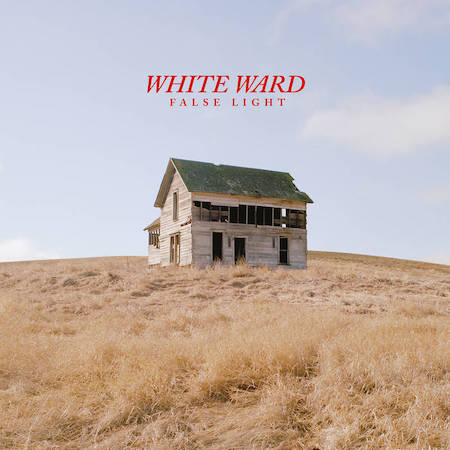
Another band that is heavily inspired by a poet and writer is Vidres A La Sang. Miquel Martí i Pol inspired them to write Fragments De L’Esdevenir. Vidres A La Sang operates in a slightly different genre compared to White Ward but can be compared in the sense that they, too, write beautiful, yet harsh music with a lot of emotional depth to it. There is no black metal to be found here though. The starting point for Vidres A La Sang is death metal. Although the death part is a little hard to find on their latest album. There is a certain gothic vibe going on that I assume fits really well with the poetry. Reference points can be Usurpress or imagine Vidres A La Sang a distant relative of Opeth. It is a short album, but in the 35 minutes this album lasts it will take your breath away. It drags you in from the first second and only lets you go when the final note is played. To me this is one of those albums that stays in your mind, even after you play it. The record may be over, but it still resonates in you. Fragments De L’Esdevenir is their fifth album and if you can get into this, you might want to check out their back catalog too. The more you go back in time, the more death metal you’ll hear.
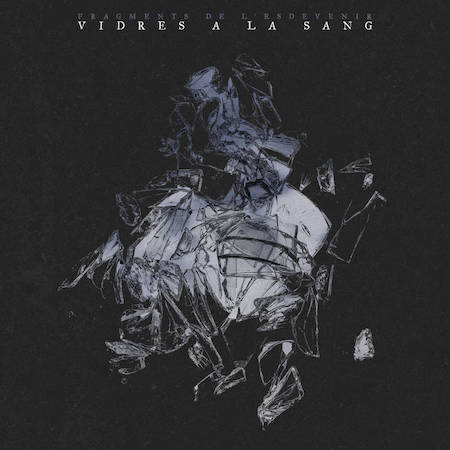
A bit more upbeat, if possible please?
Enough with the complex or dark stuff now! It is time to talk about more upbeat music before I send you on your way. I have listened to a lot of music that I would like to discuss with you here, but I have only so much space. Sifting through all that music to only talk about a couple of releases can feel a bit dissatisfying, but if I don’t limit myself, this column will never end.
Something that made me very happy is a new release of La URSS, simply titled +. This band released some really awesome post-punk, the type where you can hear why punk is in the moniker and there is a bit less focus on the post part that is now fashionable. To be honest, I thought they had stopped. Not that I ever read an official statement (or unofficial gossip) saying so. Apparently I am just an impatient bastard that gives up on a band if I don’t get my new fix quick enough. It has only been four years since their last album so it must have seemed way longer in my mind. Anyways, these folks have stayed on the path they were already on and released an album that is completely in line with their discography. Mind you, that is a very good thing. I have played this record on a daily basis since I found it. It is addicting.
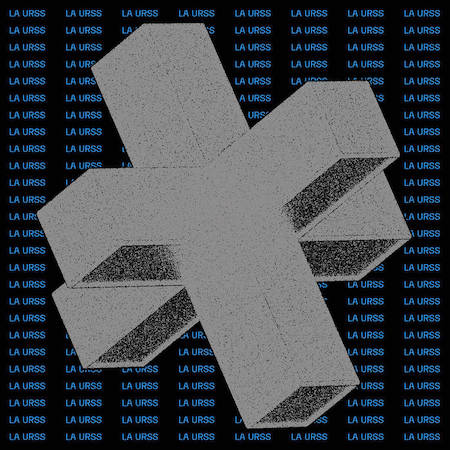
Another Spanish band tapping into that same post-punky (but bordering on punk) vein is Doctrina. They released their second album late this spring with Desprendimiento. It is slightly less addictive than La URSS, but let this not hold you back to check them out. Their first record was great, but it was more the promise of something even better to come than an absolute killer release. Deprendimiento is showing progress in the right direction. It sounds more mature in a way. For most punk bands, the term mature means: becoming more dull. Funny enough for Doctrina it is the exact opposite of that. There is more fire to their sound now, which is precisely what they needed.
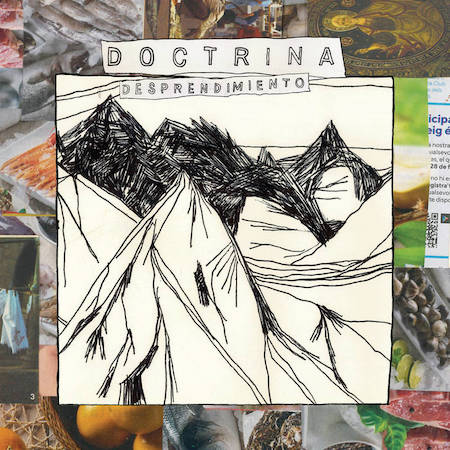
There must be something in the water in Spain, because I am about to tell you about another Spanish band. That’s the fifth Spanish band in this column (and I am not even going to talk to you about Weak who released an awesome skatepunk record with A Guide To Adult Despair). Are you ready for one more? I’ll keep it short, like this EP. The Basque part of Spain is where we find Blessure, a punk/oi! band. This band is just a fledgling compared to some of the more seasoned bands I have discussed in this column; they have only one split and two contributions to compilations under their belts. The two songs, "Ekaitza" and "Sabaté" are sung in French/Basque (the former) and Spanish (the latter). I usually am not a big fan of oi!, but somehow this band grabbed me by the throat. Their label's bandcamp tells me they are heavily influenced by French oi! from the ‘80s. Perhaps I should delve into that source one day. Just to see if I can find an oi! scene I do thoroughly enjoy.
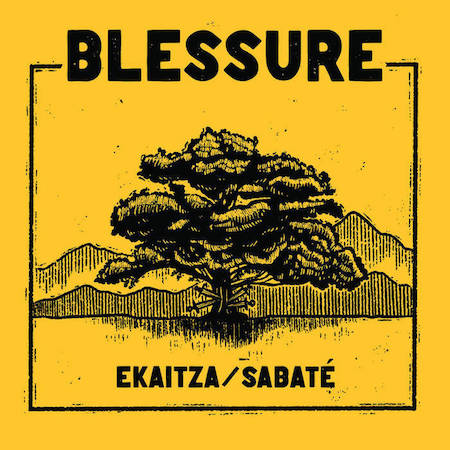
Feeling a bit frustrated for not having talked to you about a myriad of other releases I now let you be. See you next time!








